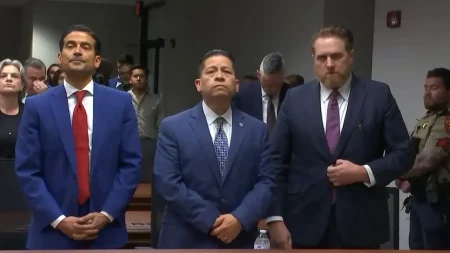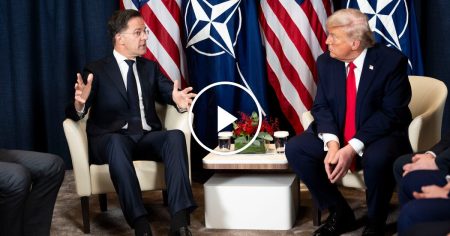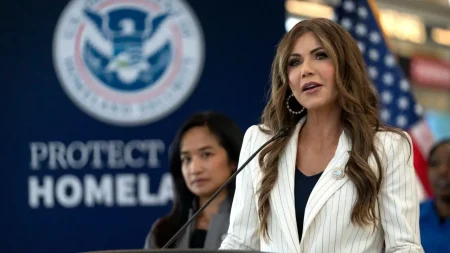Xi Jinping’s China: A Decade of Power and the Unspoken Question of Succession
The Enduring Leadership of China’s Most Powerful Modern Ruler
In the sprawling corridors of Zhongnanhai, the secluded leadership compound in Beijing, President Xi Jinping has cultivated a position of unrivaled authority that extends well beyond China’s borders. As he enters his second decade at the helm of the world’s most populous nation, Xi has systematically transformed China’s governance structure, military capabilities, and global influence. Yet amidst his consolidation of power lies a delicate and increasingly conspicuous question that few in Chinese political circles dare to address openly: what comes next, and who might eventually succeed the country’s most dominant leader since Mao Zedong?
The trajectory of Xi’s rise represents one of the most consequential political developments of the 21st century. Since assuming leadership of the Chinese Communist Party (CCP) in 2012 and the presidency in 2013, Xi has methodically dismantled the collective leadership model that characterized post-Mao governance. Through anti-corruption campaigns that conveniently eliminated potential rivals, constitutional amendments removing presidential term limits, and the elevation of “Xi Jinping Thought” to the party constitution, he has created a personalized power structure unprecedented in modern China. “Xi has effectively rewritten the political playbook,” explains Dr. Elizabeth Reynolds, senior fellow at the Center for Strategic and International Studies. “The mechanisms designed to facilitate leadership transitions have been fundamentally altered, creating a system where discussing succession becomes politically dangerous.”
The Forbidden Conversation in Chinese Politics
The topic of succession in China has become what political analysts describe as a “third rail” – a subject so charged with risk that even senior party officials approach it with extreme caution, if at all. This represents a stark departure from previous decades when leadership transitions, while never fully transparent, followed more predictable patterns. Former leaders Jiang Zemin and Hu Jintao each served two five-year terms before stepping aside for their designated successors. Xi’s elimination of term limits in 2018 upended this convention, theoretically allowing him to remain in power indefinitely. “There’s an intentional ambiguity surrounding succession planning,” notes Professor Wei Li of Georgetown University’s School of Foreign Service. “This uncertainty serves Xi’s interests by preventing potential successors from building independent power bases while reinforcing the narrative that his leadership remains indispensable to China’s continued rise.”
The sensitivity surrounding succession discussions extends throughout China’s political, academic, and media landscapes. Government censors vigilantly scrub speculation about leadership transitions from social media platforms, while state media outlets studiously avoid any commentary that might imply limits to Xi’s tenure. Foreign journalists who attempt to explore the topic frequently find their questions deflected or meetings canceled. When Bloomberg News published an investigation in 2012 about the wealth accumulated by Xi’s extended family, the organization’s website was blocked in China, and its reporters faced visa restrictions. This pattern of suppression has intensified as Xi’s position has strengthened, creating an environment where even theoretical discussions about future leadership become fraught with political risk.
The Geopolitical Implications of Leadership Uncertainty
The absence of clear succession planning in Beijing has profound implications that extend far beyond China’s borders. For international leaders, policymakers, and businesses, the uncertainty surrounding China’s future leadership trajectory complicates strategic planning and risk assessment. “Every major economy and security alliance must now factor in the possibility of Xi’s extended rule, while simultaneously preparing for unexpected transition scenarios,” explains Dr. Margaret Chen, director of the East Asia Security Program at the Brookings Institution. “This ambiguity introduces significant volatility into international relations at a time when predictable engagement with China has never been more critical.”
The succession question intersects with multiple critical issues shaping global affairs, from Taiwan’s security to the future of climate cooperation. Xi has positioned himself as the indispensable architect of China’s “national rejuvenation,” tying his personal leadership to nationalist ambitions like the potential reunification with Taiwan and the achievement of technological self-sufficiency. These objectives carry timelines that extend beyond what would be considered a normal leadership tenure, reinforcing the narrative that Xi must remain in power to oversee their completion. International negotiations on climate change, trade relationships, and security frameworks are all affected by the uncertainty of who will guide Chinese policy in the coming decades. As former Australian Prime Minister Kevin Rudd observed in a recent policy brief, “The personalization of Chinese foreign policy under Xi means that understanding his potential longevity in office has become essential for effective diplomatic engagement.”
The Invisible Successors: China’s Missing Next Generation
Perhaps the most telling indicator of Xi’s approach to succession planning is the conspicuous absence of younger leaders being groomed for higher office. Previous generations of Chinese leadership deliberately cultivated a “bench” of potential successors, providing them with increasingly significant responsibilities and international exposure. This practice has largely disappeared under Xi, with the Politburo Standing Committee – China’s highest decision-making body – now populated primarily by Xi loyalists, many approaching or exceeding traditional retirement ages. The 20th Party Congress in 2022 further consolidated this trend, with Xi surrounding himself with officials whose advancement depends entirely on personal loyalty rather than independent political standing.
The systematic sidelining of potential successors reflects a broader recentralization of authority under Xi’s leadership. Former potential contenders like Sun Zhengcai and Bo Xilai were purged through anti-corruption campaigns, while others have been marginalized through bureaucratic reassignments. “Xi has effectively eliminated the political generation that would naturally succeed him,” notes Dr. Minxin Pei of Claremont McKenna College. “This creates not only a succession vacuum but also raises questions about institutional resilience. When leadership transitions become unpredictable, political systems become vulnerable to instability.” This approach stands in marked contrast to the careful succession management practiced by the Singapore model that China once appeared to admire, where leadership transitions are meticulously planned years in advance to ensure policy continuity and political stability.
Looking Beyond Xi: The Future of Chinese Leadership
While the immediate prospects for leadership transition appear limited, historical patterns suggest that no political arrangement – however carefully constructed – remains permanent. China faces significant demographic, economic, and environmental challenges that will test even Xi’s consolidated authority. The country’s aging population, slowing economic growth, and environmental degradation represent systemic pressures that transcend individual leadership. As China navigates these complex challenges, the question of succession may eventually become unavoidable, regardless of current political taboos.
The international community remains attentive to subtle signals that might indicate evolving succession scenarios. These include monitoring the careers of provincial leaders who receive unusual promotions or media attention, analyzing changes in the protocol order at state functions, and scrutinizing adjustments to official rhetoric about leadership. While Xi has successfully centralized power to an extraordinary degree, China’s political system still operates through complex networks of party factions, military relationships, and economic interests. These underlying structures may ultimately influence how and when leadership transitions occur, even if the current environment makes such discussions politically dangerous. As China continues its ascent as a global power, the question of who will eventually guide its future trajectory remains one of the most consequential unknowns in international politics – an uncertainty made more significant precisely because it cannot be openly discussed within China itself.











